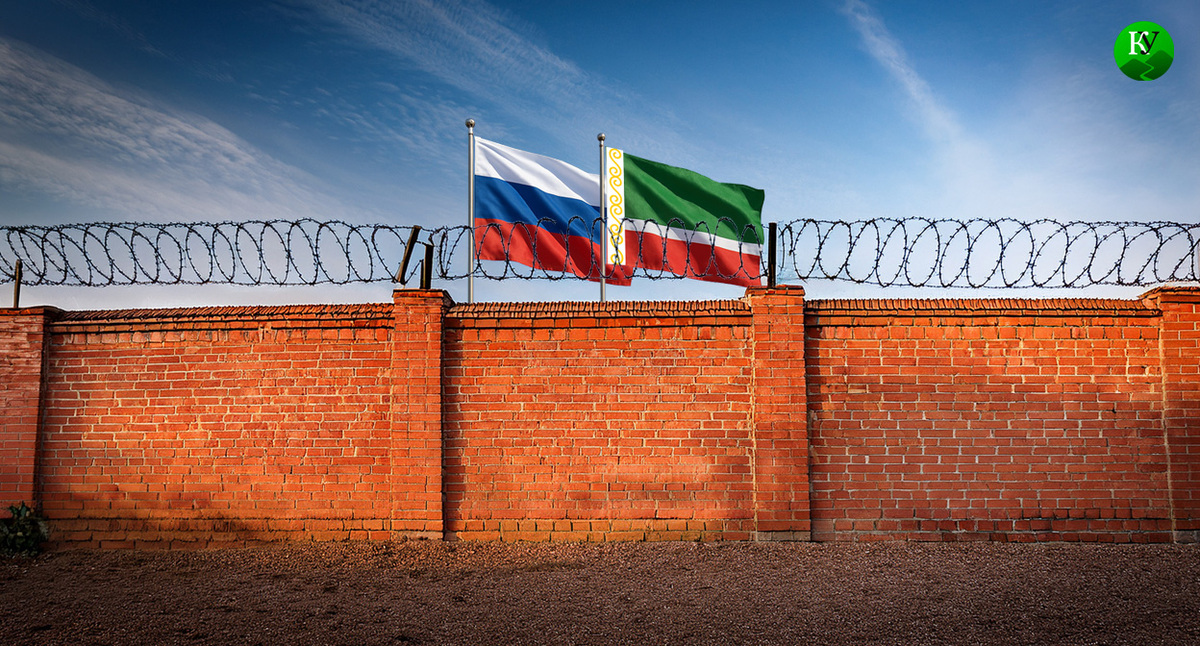Human rights defenders explain transfer of prisoners from Chechnya closer to home
The law limits the right of the persons convicted under articles on terrorism and extremist to serve the sentences closer to their home, although all prisoners may request such a transfer. However, in the case of convicted natives of Chechnya, the position of the republic’s authorities often plays a decisive role.
Chechen Ombudsperson Mansur Soltaev reports that he has ensured the transfer of more than 150 prisoners from Chechnya to penitentiary institutions in Chechnya and Stavropol, closer to their home. The Ombudsperson of Chechnya has emphasized that permanent contact with relatives “has a positive effect on the convicts’ correction,” the “Chechnya Segodnya” (Chechnya Today) news agency quotes Mansur Soltaev as stating. However, in practice, not all prisoners are able to get transferred to a penitentiary institution closer to their home. For example, in 2019, Chechen native Albek Dakhtaev, convicted on the charge of having connections with militants, was denied a transfer from a penal colony in Murmansk to the Stavropol Territory, although the European Court of Human Rights (ECtHR) recognized that serving the sentence in a region so remote from the place where relatives of Albek Dakhtaev lived was a violation of the convict’s rights.
The Criminal Executive Code of the Russian Federation provides for restrictions on the possibility of transferring a convict closer to his or her home or the place where his or her relatives live: this opportunity does not apply to those convicted under a number of articles, lawyer Abusupyan Gaitaev explains.
“Such restrictions are provided for by, of course, all ‘terrorist’ articles and ‘extremist’ articles. However, there are also restrictions for those convicted of some other crimes. For example, I had a client who was sentenced for kidnapping a person (Article 126 of the Criminal Code of the Russian Federation). He was also sent to another region,” lawyer Abusupyan Gaitaev stated.
 The lawyer explains that the law entitles the Federal Penitentiary Service (known as FSIN) to send on their discretion those convicted under various articles listed in Paragraph 4 of Article 73 of the Criminal Executive Code of the Russian Federation to remote penal colonies. The mentioned paragraph contains a proviso that the same approach is applied to the persons convicted “for other crimes, if ‘there is information about their commitment to the ideology of terrorism, professing, propaganda, or dissemination of such ideology (in the absence of sufficient data to decide on the issue of initiating a criminal case)’.”
The lawyer explains that the law entitles the Federal Penitentiary Service (known as FSIN) to send on their discretion those convicted under various articles listed in Paragraph 4 of Article 73 of the Criminal Executive Code of the Russian Federation to remote penal colonies. The mentioned paragraph contains a proviso that the same approach is applied to the persons convicted “for other crimes, if ‘there is information about their commitment to the ideology of terrorism, professing, propaganda, or dissemination of such ideology (in the absence of sufficient data to decide on the issue of initiating a criminal case)’.”
“However, that does not deprive convicts of the right to be sent or left to serve their sentence in the region where they are registered or where their close relatives live. That is, even a person convicted, let’s say, under a terrorist article, may file a lawsuit to transfer him or her closer to home. Sometimes there are cases, but they are very rare, when a person successfully challenges (the decision of the Federal Penitentiary Service). These are exceptions,” lawyer Abusupyan Gaitaev noted.
For the persons convicted under other articles who want to be transferred to their region, it is advisable to write an appeal to the head of the penal colony and the chiefs of the appropriate FSIN’s Department, the defence lawyer believes. “Despite the fact that it is prescribed by law, we, of course, do our best just in case. The person who serves his or her sentence in prison should still write an appeal to the Federal Penitentiary Service to initiate the procedure, and his or her relatives should also file a request for transfer. If there is some delay, the Federal Penitentiary Service does not comply with the law, then a person may file a lawsuit, and here the practice is more successful in favour of prisoners,” Abusupyan Gaitaev pointed out.
The defence lawyer has found it difficult to note whether transferring prisoners closer to their families actually reduces the level of recidivism. “I have not seen such data, but in this situation, social and psychological aspects are important. After all, if a prisoner serves his or her sentence in a penal colony located thousands of kilometres away from his or her relatives, he or she is practically deprived of visits and parcels. This requires additional expenses, creates difficulties for families, and, of course, it does not contribute to the further correction of the prisoner’s behaviour and socialization,” lawyer Abusupyan Gaitaev stated.
All convicts may request a transfer, although for the persons convicted under special articles listed in Article 73 of the Criminal Executive Code of the Russian Federation, the chances of success are small, explained Valentin Bogdan, the head of the “For the Protection of Prisoners’ Rights”* foundation. The human rights defender notes that in its response to such prisoners, the FSIN will refer to its right to determine the place of serving the sentence. “Let’s say, there are seven penal colonies for persons sentenced to life imprisonment, and the FSIN will send convicts exactly where officials deem necessary. Because there is a special order of distribution of persons convicted for extremism and terrorism,” the human rights defender explained.
Convicts, their relatives, and defence lawyers need to demonstrate to FSIN officials their knowledge of the law in order to achieve the implementation of their rights. “The relatives or defence lawyers themselves are able to influence the FSIN’s decision. For example, I filed a special appeal so that Igor Nagavkin would not be sent somewhere far from home. Such actions, taken in advance, lead to a positive result. This demonstrates that we know the law,” Valentin Bogdan explained.
The human rights defender believes that recidivism depends on the individual qualities of a convict, but the place of serving the sentence still matters. “If a convict stays in a penal colony located close to home, then the person retains family ties, which still have weight. There is a chance to have long relatives’ visits,” human rights defender Valentin Bogdan noted.
In contradiction to Chechen Ombudsperson Mansur Soltaev’s reports, the authorities of Chechnya do not facilitate the transfer of convicts closer to home if they do not have a special interest in a case. In other cases, on the contrary, natives of the republic are being sent to serve their sentences as far from home as possible. This opinion has been voiced by a Chechen human rights defender who preferred to remain anonymous and who is familiar with the real situation in Chechnya. “Bakhaev is being transferred because he is part of their (the authorities'’ team, and Dakhtaev is not being transferred because the Chechen authorities are preventing his transfer. If the Chechen authorities had at least demanded that the Federal Penitentiary Service comply with the law when choosing places to serve sentences for convicts, there would not have been such mass violence against convicts from Chechnya,” the human rights defender believes.
He notes that after a prisoner is transferred to a penal colony closer to home, it is easier for relatives to exercise their legal right to visit the convict. “In the home region, visiting convicts does not require huge amounts of money, which are needed to visit them in other regions, where most convicts from Chechnya are sent,” the human rights defender noted.
This was originally published on the Russian page of 24/7 Internet agency ‘Caucasian Knot’ on June 16, 2025 at 06:58 pm MSK. To access the full text of the article, click here.
*Included by the Russian Ministry of Justice (MoJ) into the register of foreign agents.

